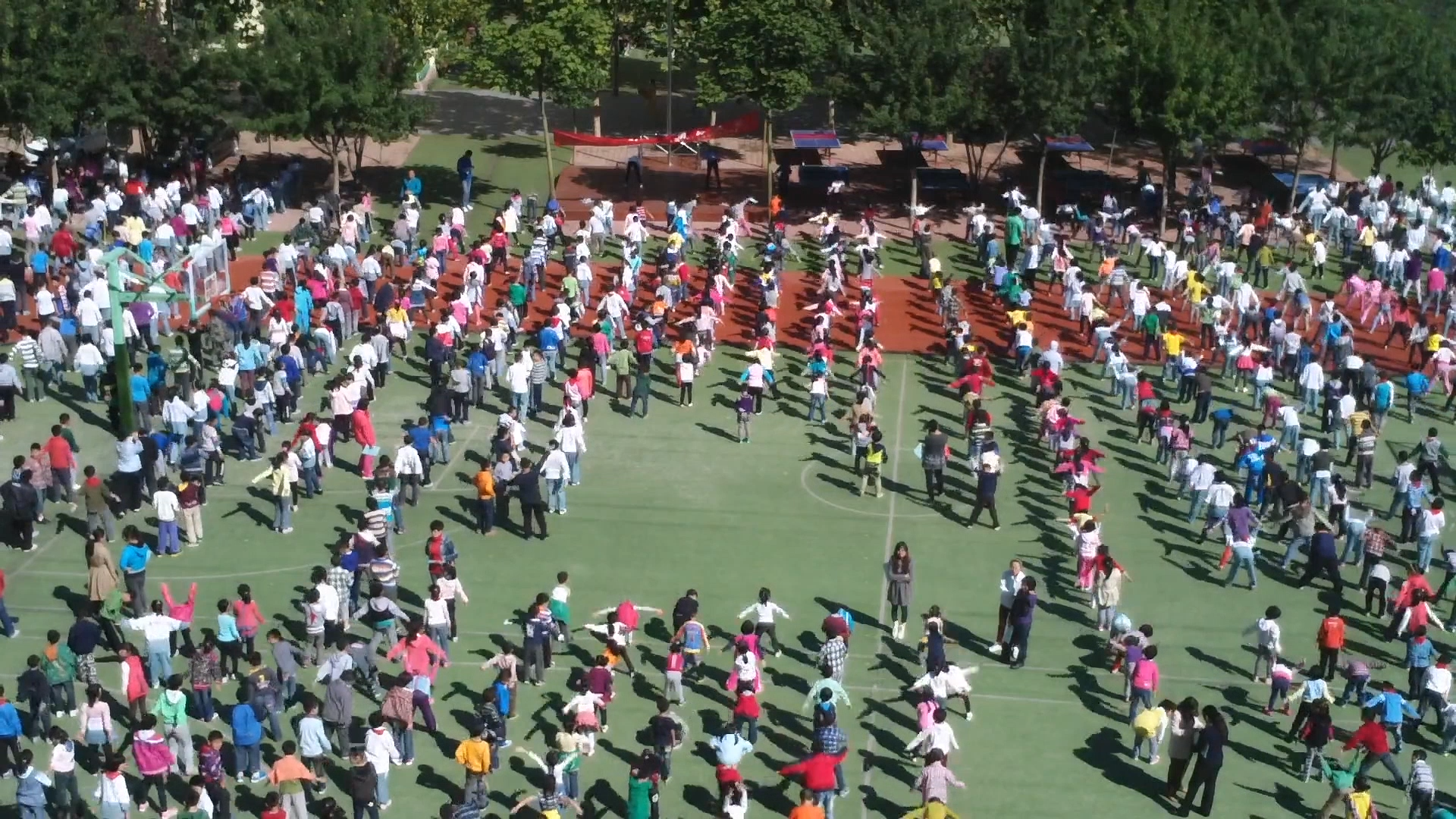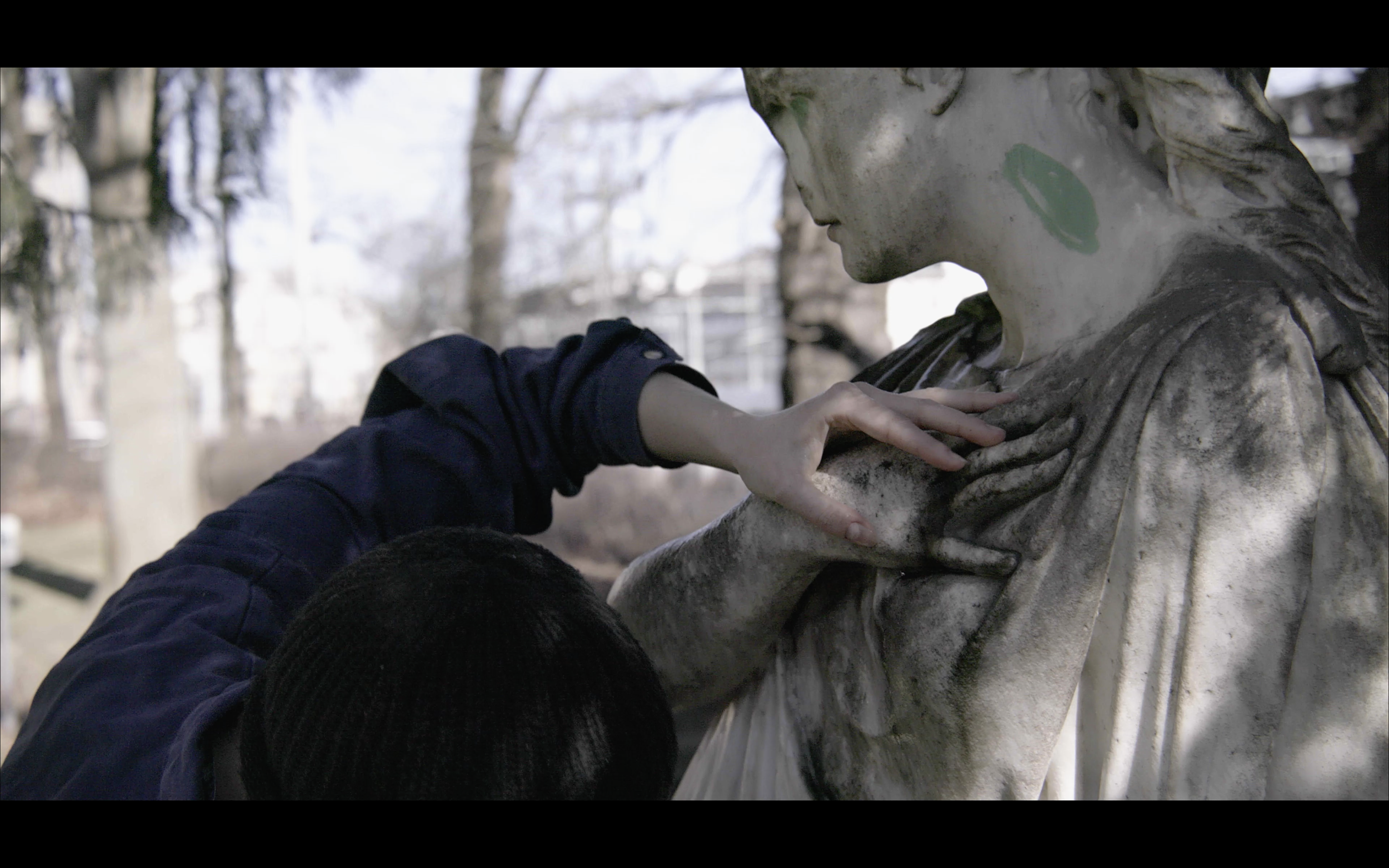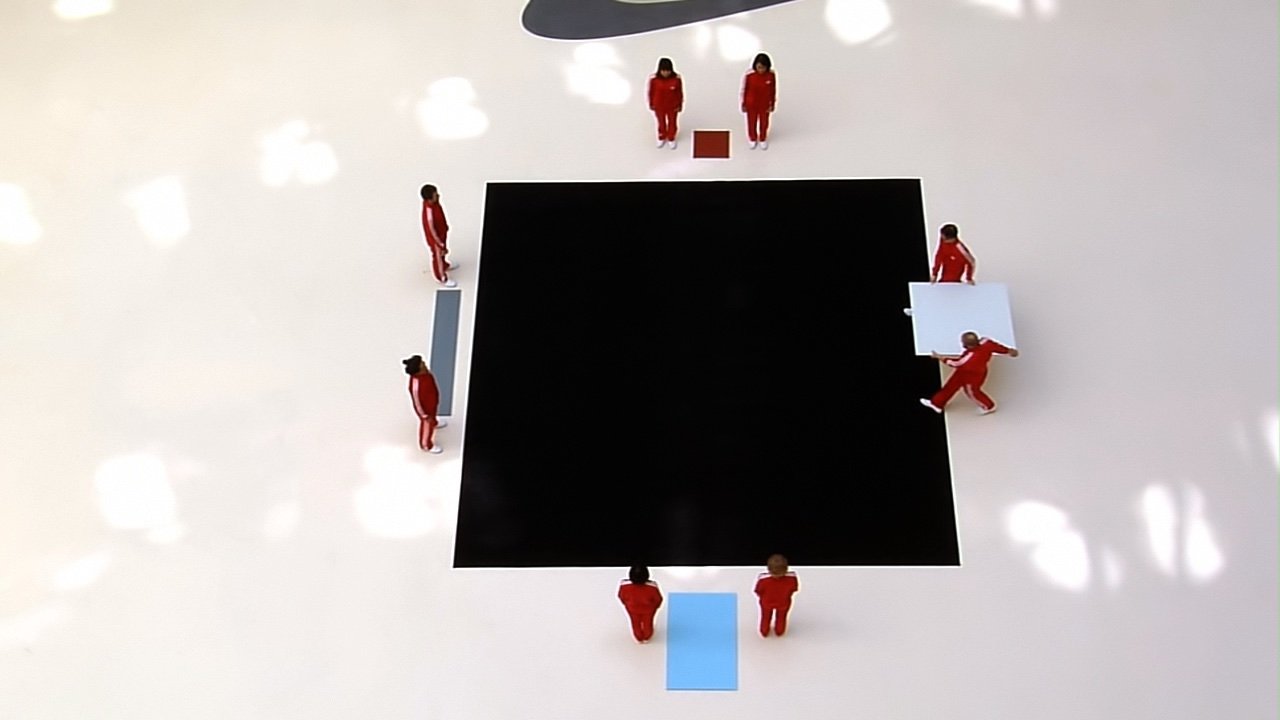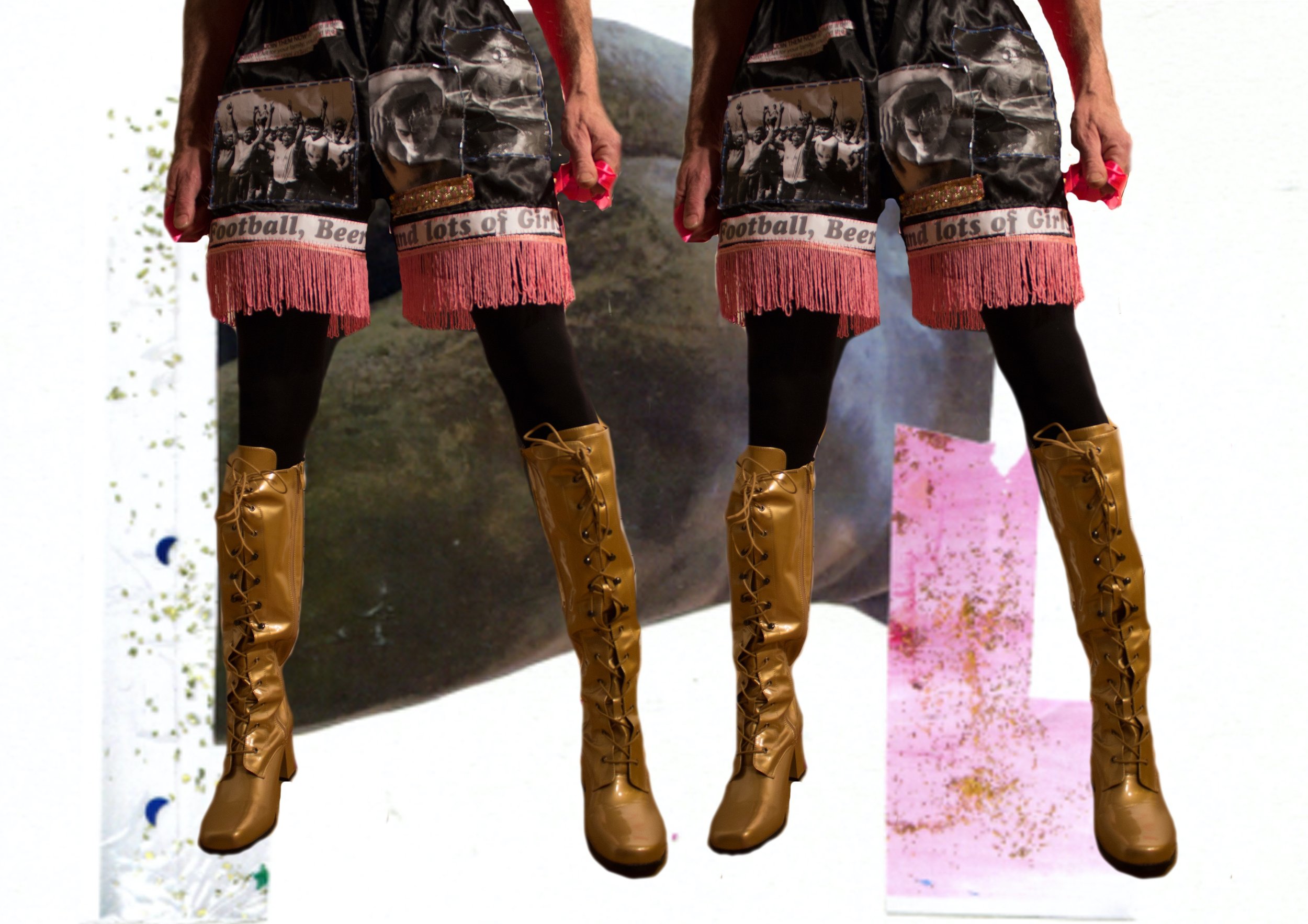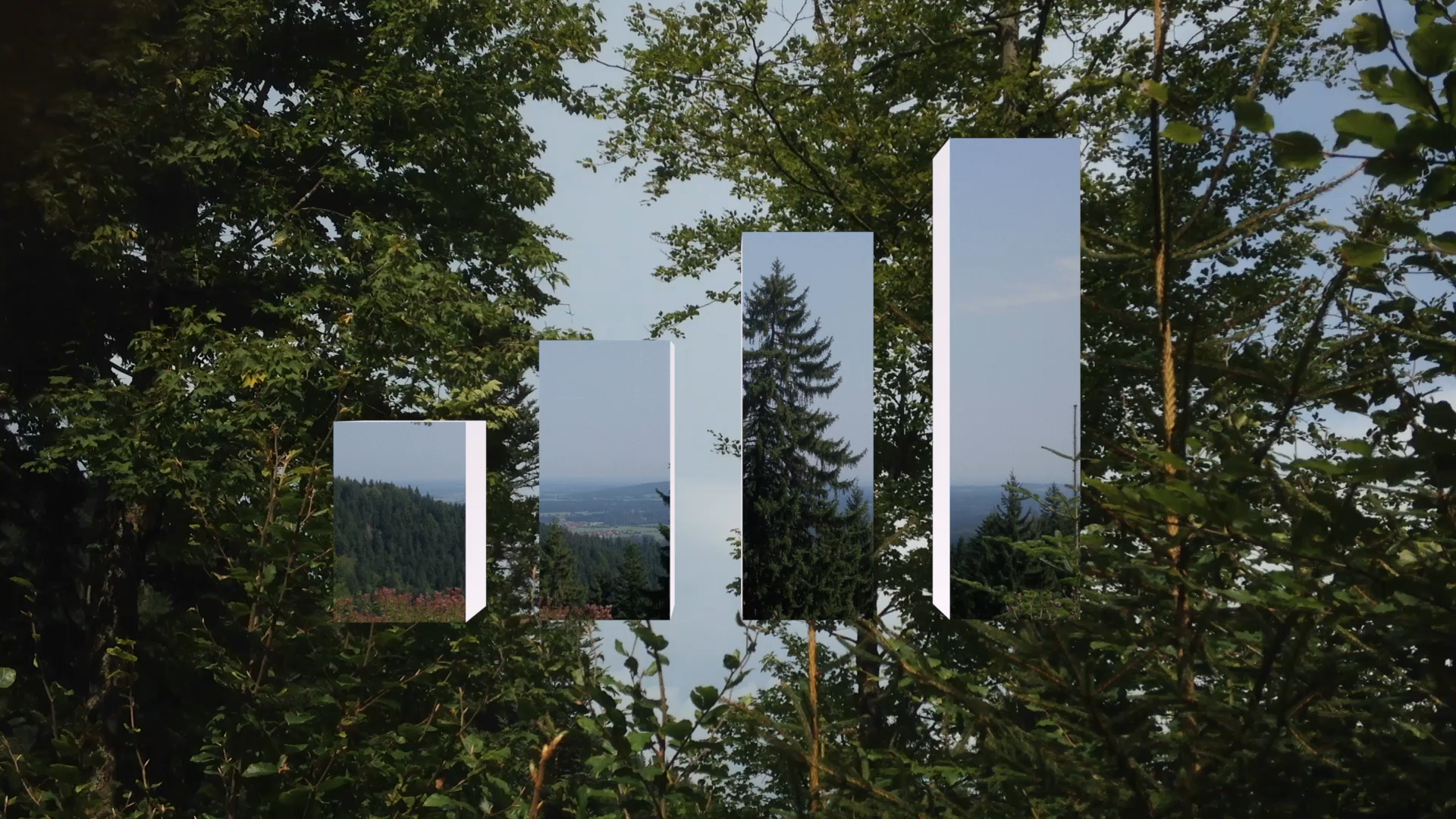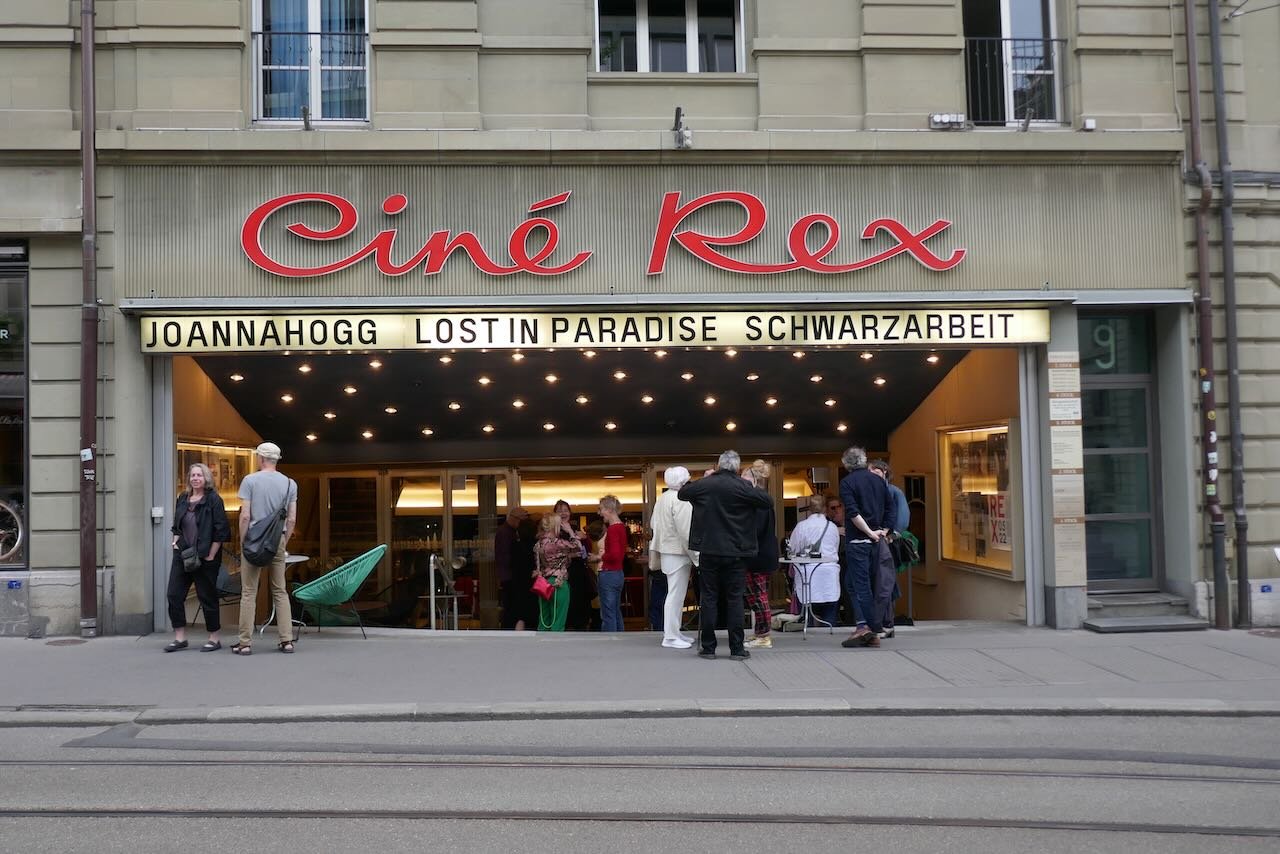


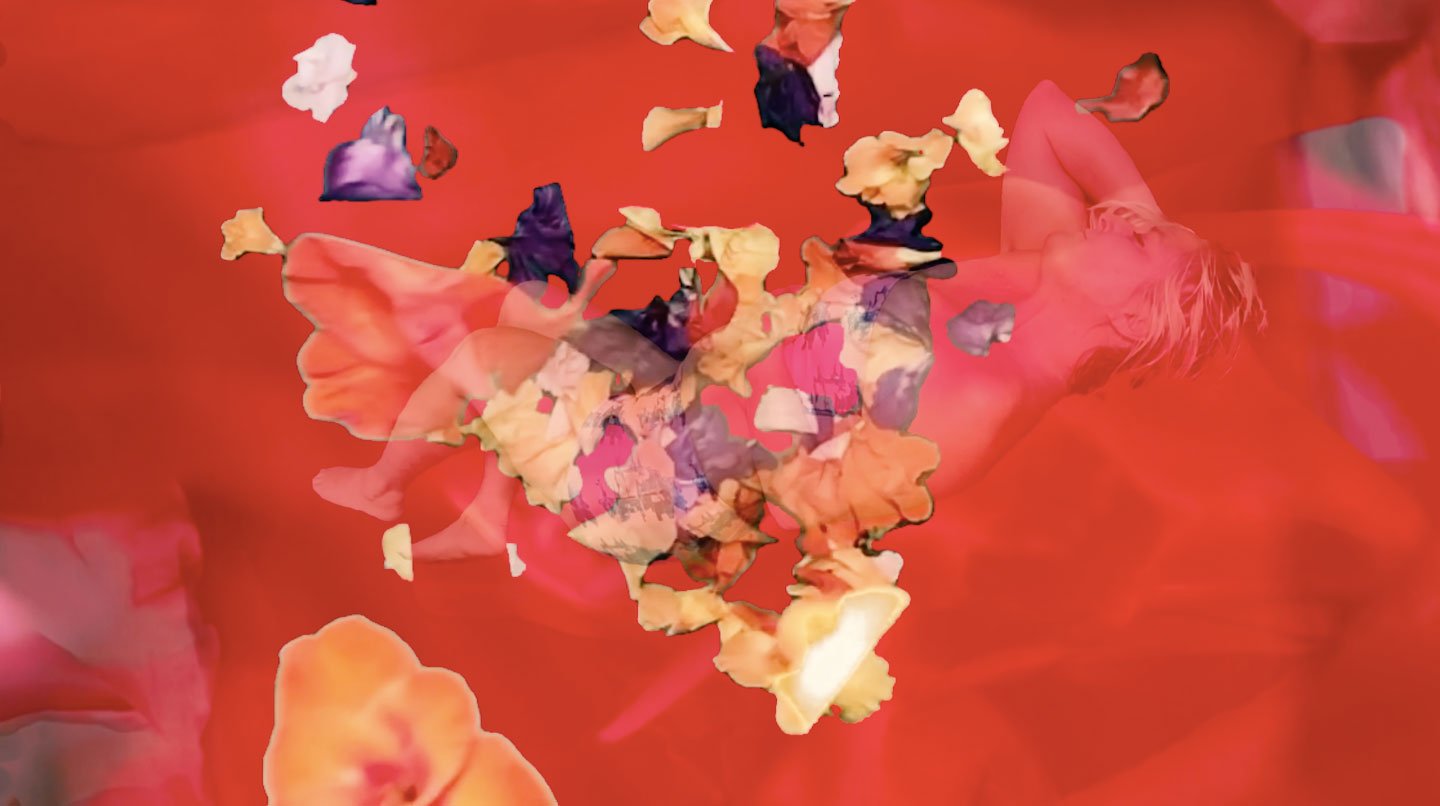
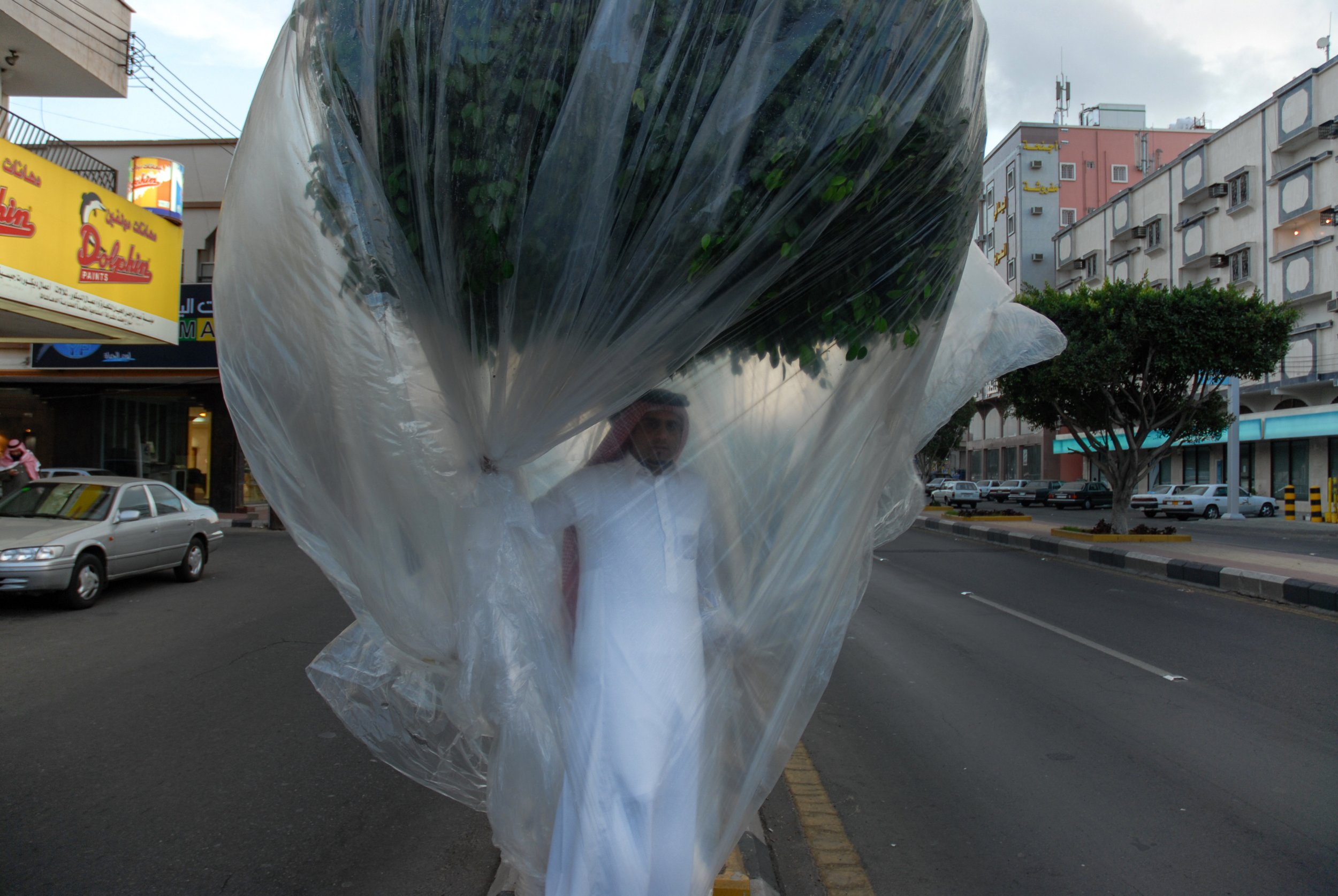
UTOPIA x REX Box
Monthly curated cycles until April 2024, daily, 13:30 to 24:00
Kassenhaus des Kino REX Bern, Schwanengasse 9, 3011 Bern.
Please select the month below to find out more.
-
Dem Kino REX Bern ist es ein Anliegen, über die Grenzen des klassischen Kinos hinauszugehen. Das internationale Netzwerk um die Kuratorin Andrea Domesle Videocity ist daher eingeladen, in der REX Box, dem ehemaligen Kassenhaus, Videokunst zu zeigen. Mit dem Gastspiel von Videocity werden Bezüge zwischen Videokunst und Spielfilm ausgelotet. Jeden Monat kuratiert eine andere Person aus dem Videocity-Team und Netzwerk das Programm. Ab Mai beginnt der neue Zyklus «Utopie im Heute», welcher dann ein Jahr lang zu sehen sein wird.
Mit dem Video-Zyklus im Jahr 2023 unterscheidet sich die Darstellung von „Utopie“ von der kunstgeschichtlichen Tradition. Hierzu zählt, dass man sich auch vom Begriffspaar „Utopie“ und „Dystopie“ verabschiedet. Im Zentrum steht nicht die Frage: „was wäre, wenn?“, sondern „was können wir jetzt tun?“. Es soll nicht um eine künftige ideale Welt gehen, sondern um die Taten, die jede Person im Hier und Jetzt machen kann, um die Welt zu verbessern – sei es in kleinen Schritten im Alltag. Dieser Zyklus zielt darauf ab, kritische Stimmen zu verstärken, die sich weder auf das Positive noch auf das Dystopische konzentrieren, doch hoffnungsvoll bleiben.
„Während die utopischen Tendenzen der 1960er Jahre sich stark in den Bereichen Design, Architektur und Film manifestierten und in der Mondlandung 1969 kulminierten, gerierten sich die utopischen Hoffnungen der 1990er Jahre nach Fall des Eisernen Vorhangs auch in den darauffolgenden Jahrzehnten eher als dystopisches Verhältnis, da die Osthälfte Europas nur allmählich in ein Gesamtgefüge gebettet werden konnte. Nach den Krisen von 2001, 2008, der Notwendigkeit einer Klimagerechtigkeitsbewegung, der Pandemie und schließlich dem Angriffskrieg auf die Ukraine kippten die einstigen utopischen Erwartungen und wurden zusehends in ein dystopisches Szenario verwandelt, aus dem es vorerst keinen Ausweg zu geben scheint.
Den Künstler:innen des Projektes „Utopia im Heute“ geht es jedoch nicht darum, existierende Dystopieszenarien zu verhandeln, sondern zu versuchen, utopische Momente in der Gegenwart aufzuspüren, auch wenn diese nur eine minimale Sichtbarkeit aufweisen, und diese künstlerisch ins Bild zu setzen. Es handelt sich dabei auch um eine junge Generation, die von der Geschichte weniger belastet ist und die Möglichkeiten des digitalen Zeitalters voll ausschöpft, wodurch Parallelwelten zu den aktuellen politischen Konstellationen geschaffen werden. Das Projekt zeigt einen großen Anteil an Videos von jüngeren weiblichen Künstlerinnen, die Transformationsprozesse in ihrem Leben markieren. Ebenso kommt es zu einer Auflösung klassischer Gender Modelle und einer Fluidität der Identitäten und (digitale wie körperliche) Realitäten, die neue Parameter für eine mögliche Zukunft schafft.“ (Walter Seidl, Co-Leitung Videocity Austria)
-
The REX Bern cinema is striving to go beyond the boundaries of classical cinema. The international network Videocity, founded by Andrea Domesle, has been invited to show video art in the REX Box, the former box office at the entrance of the cinema. Videocity's guest performance explores references between video art and feature film. Each month, a different curator from the Videocity team and network curates the programme. The new cycle "Utopia Today" begins in May and will be programmed for a year.
The 2023 video cycle differs from the representation of "utopia" in the art historical tradition. Our approach includes saying goodbye to the antonyms "utopia" and "dystopia". The focus is not on the question: "what if?" but "what can we do now? It is not supposed to be about a future ideal world, but about the actions that every person can do here and now to improve the world – be it small steps in everyday life. This cycle aims to amplify critical voices that focus neither on the positive nor on the dystopian, yet remain hopeful.
"While the utopian tendencies of the 1960s manifested themselves strongly in the fields of design, architecture and film, culminating in the moon landing in 1969, the utopian hopes of the 1990s, after the fall of the Iron Curtain, also proved to be more of a dystopian relationship in the decades that followed, as the eastern half of Europe could only gradually be embedded in an overall structure. After the crises of 2001, 2008, the need for a climate justice movement, the pandemic and finally the war of aggression on Ukraine, the former utopian expectations tilted and were visibly transformed into a dystopian scenario from which there seems to be no way out.
However, the artists of the cycle "Utopia Today" are not concerned with negotiating existing dystopian scenarios, but rather with trying to detect utopian moments in the present, even if they have only minimal visibility, and to put them into the picture artistically. This is also a young generation that is less burdened by history and fully exploits the possibilities of the digital age, creating parallel worlds to current political constellations. The project shows a large proportion of videos by younger women artists that mark transformation processes in their lives. Likewise, there is a dissolution of classical gender models and a fluidity of identities and (digital as well as physical) realities that creates new parameters for a possible future." (Walter Seidl, Co-director Videocity Austria)

